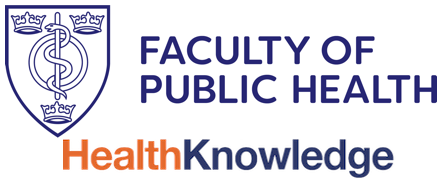(Please also see ethical, social and legal implications of a genetic screening test)
Public and media attention can lead to undue pressure on policy makers to introduce a screening programme without considering the opportunity costs and harms such as those from false results. For this reason, the ethical, economic and social consequences should always be carefully considered prior to the introduction of a new screening programme. In the UK these aspects are largely overseen by the UK National Screening Committee (UK NSC) (please also see section 3.7 on role of the UK NSC).
Ethical aspects
Beauchamp and Childress (2001) set out one of the most widely used frameworks in medical ethics. It consists of four principles, namely beneficence, non- maleficence, justice and autonomy. Screening programmes have the potential to violate each of these. In the worst case scenario a false negative test result can lead to preventable death.
Table 3.5.1 Ethical aspects of screening
|
Principle |
Potential harm |
|
Beneficence |
|
|
Non-malfeasance |
|
|
Justice |
|
|
Autonomy |
|
Economic aspects (Value for money)
Introducing and running a screening programme is expensive and associated with large numbers of people to be screened (including administrative costs) to find a small number of cases. The opportunity cost of the screening programme (including testing, diagnosis and treatment, administration, training and quality assurance) should be economically balanced in relation to expenditure on medical care as a whole. Economic evaluations should be subject to sensitivity analysis and discounting.
Legal aspects
Table 3.5.2 Legal aspects of screening
|
Test license and safety |
The employed screening test needs to be licensed and safety approved by a statutory body |
|
Qualification and Accreditation |
To assure standards, diagnosticians involved in processing the test must be qualified, registered and accredited by a statutory body. To retain their accreditation, they must deal with a minimum number of abnormal cases each year |
|
Confidentiality |
Individual level information collected though screening must be kept confidential to authorized personnel only and managed in accordance with Caldecott Guidelines |
|
The right NOT to be screened |
For certain diagnoses (e.g. genetic screening for Huntington's disease), the right of children not to be screened may be protected in law. Likewise, the law offers protection to prisoners and to people with learning difficulties against coercion into screening programmes. The should be no discrimination of non-participants |
|
Consent |
Documentation of consent to be screened may be necessary in writing (see informed choice) |
Social aspects
Health beliefs and attitudes are important influences in participation in screening, but may vary significantly between target population subgroups. These need be considered in the planning and monitoring stage in order to ensure that any new screening programme does not exacerbate health inequalities, e.g. between social classes or between different ethnic groups.
Table 3.5.3 Social aspects
|
Factors that may increase participation in screening |
Factors that may decrease participation in screening |
|
Knowledge of condition |
Disease phobia |
|
Perception of susceptibility |
Stigma associated with condition |
|
Perception of disease severity |
Unpleasant diagnostic tests and treatment |
|
Knowledge of availability of treatment |
Socio-economic factors (e.g. income, education, deprivation, employment) |
|
|
Socio-demographic factors (age, sex, ethnicity, language, creed) |
|
|
Accessibility of screening sites |
Reference materials
- Principles of Biomedical Ethics, 5th edn. , Beauchamp T L, Childress J F. Oxford University Press, 2001
- 'Mastering Public Health: A postgraduate guide to examinations and revalidation. Lewis GH, Sheringham J, Kalim K, Crayford, TJB. London: Royal Society of Medicine Press Ltd; 2008
© Dr Murad Ruf and Dr Oliver Morgan 2008, Dr Kelly Mackenzie 2017
